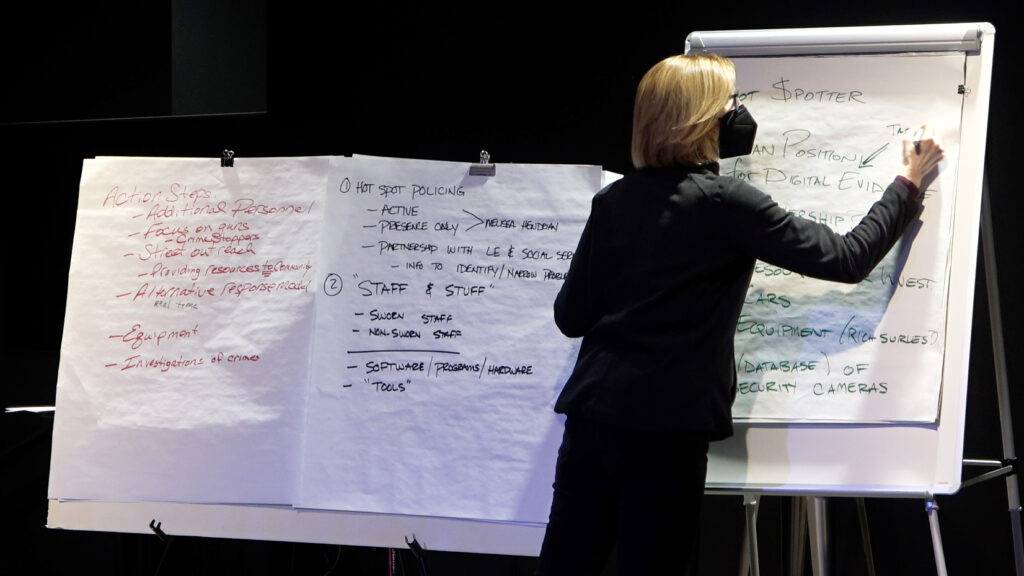
When public bodies, such as the Urbana, Illinois City Council hold meetings, they have to comply with Open Meetings Act (OMA) requirements, and they also typically have their own procedural rules. Virtually every such public body has a procedural rule that rises above all else: a “point of order” can be called by any single member of the body and at time to bring attention to breach of procedure or law.
When Urbana City Clerk Phyllis Clark, along with several City Council members and City employees, forbade recording at their February 22nd meeting, raising a point of order is essentially what Ward 6 Alderperson Grace Wilken did.
After Clerk Clark spoke at the microphone, and then City Administrator Carol Mitten spoke at the microphone, Wilken tried to argue that recording public meetings was a protected right. The Illinois Open Meetings act does explicitly protect the right of the people to record meetings.
Wilken’s objection should have been addressed by the meeting Chair, which would have been Mayor Diane Marlin. Marlin, who was sitting directly across from Wilken, refused to make any comment at all.
Administrator Mitten, who is not an elected official, is not a member of the City Council, and has no inherent right to interject or dictate any procedural action at all during a Council meeting, immediately shut down Wilken’s plea.
Mitten suggested that the City Council and other City Officials should either try to ignore being recorded or leave the meeting. Her speech appeared to be an admission that people had the right to record public meetings, but Council members continued to disable audio equipment after Mitten spoke. They did so within full sight of Carol Mitten and Deputy Chief Richard Surles, who also supported the recording prohibition.
Carol Mitten, the City Council, and other City Officials, have been recorded at their meetings for years. For the vast majority of their recent public meetings, the same officials sit directly in front of a camera and microphone for the duration of the meeting. State law requires the City to record their Zoom meetings, and requires them to “allow any interested member of the public access to contemporaneously hear all discussion, testimony, and roll call votes”. It is nothing short of bizarre that dozens of City officials suddenly felt that a City Council meeting should not be recorded.
Another Check CU article, which describes the recording prohibition at Tuesday’s meeting in greater detail, can be viewed here:
